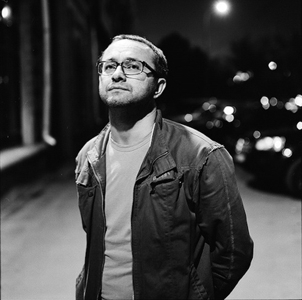The Return: Interview witn Andrey Zvyagintsev
12/01/2004
The Return is a dark thriller set in the empty landscape of northern Russia, and shot with a moody, almost monochrome feel. A long absent father suddenly appears and takes his two sons on a camping trip, giving them no explanation. First-time director Andrey Zvyagintsev likes to leave things unsaid, as he shows in this interview, conducted by the World Cinema Award production team in December 2004.
What was the inspiration for the story?
The script was the inspiration. Myself and the producer, Dmitry Lesnevsky, decided to film a feature-length movie, and we read many scripts over about half a year. This was the only script that really moved us. But not immediately - the very strong feeling that it wasn't just an entertaining travel story, but something much more, came maybe six months after I first read it.
Would you say the story is about father/son relationships?
I don't like to talk about the idea of the movie or the concepts behind it - that's my official position. A movie or piece of art represents in itself everything that the author wanted to say. You can see everything in the film.
There was a festival in Spain where the movie won a best actor prize. A juror told me they had decided to award the prize to all three actors rather than single one out, because the ensemble creates such a perfectly formed whole, you can't divide it. I was really pleased that people saw it like that. It was there in the script and that's what we were looking for during filming. The interaction between the actors creates its own universe, that was the word the juror used.
Could you tell us how you found the boys?
We spent half a year looking for them, and in the end I was simply lucky - I found two genius kids. They were absolute professionals. And of course they were both unbelievably talented. I was worried that I wouldn't find them, because you could see from the screenplay they had to be great natural actors. Over six months I personally spoke to 600 boys, but in the end we picked two we had seen in the first three weeks.
With Vanya, I saw straight away that this was a grown-up in front of me. He sat down and looked at me intently, and I had a feeling that it was me who was being auditioned. Later he told me that from the very first moment he knew he wanted to work with me. It's me who should have been saying that!
How did you encourage a fraternal bond between the boys?
I didn't have to, they simply grew really close at the shoot. We were lucky - usually you shoot films in different locations, here and there. We had a 40-day expedition during which we were always together. But the atmosphere in many of my favourite scenes came from my own experience, from childhood memories. I don't have a brother myself, but in the tent scene especially, when they whisper: "Hey, kiddo, hear me, kiddo?" I remember it from pioneer camp, that feeling of brotherhood.
What did you want from the father character?
Originally in the screenplay the father role was less mysterious. Remember the scene where they sit at the fire and one of them asks, "Why don't you eat fish?" There were then about two pages of monologue - a huge story. And I knew that just didn't fit. The father only says what it is necessary to say. And suddenly such a monologue - that was a violation of all the laws. And that monologue also showed a little bit more of the father…but I understood that it had to be different.
Why did you decide to use the still photographs in the film?
One of my best friends is a photographer - I decided I had to use him in the story somehow, just for fun. Also, it was a solution to a problem. We were originally going to show a lot of text from the diary on-screen, but I think that can be a sign of a lack of imagination. Sometimes it works, like in American Beauty for example, but generally if you can think of a way to turn text into visuals, you should do it. That's how we came up with the idea of the children taking black-and-white photos.
Finally, how healthy is the Russian film industry in this new capitalist era?
More and more movies are being shot, but I don't believe in making prognoses. For example in science there is a new Einstein born and he offers a new paradigm, a new way of looking at things - and all the sciences from that moment see the world differently. The same thing happens in art. A new person emerges and a new cinema language is born - it's impossible to predict.
On the other hand, you can always predict the commercial cinema industry because its only goal is to earn maximum money. Ideas are constantly recycled, it's like a snake eating its own tail. It's a dead end.
There was a very critical reviewer, and this critic shot a movie of his own - it was a really bad movie - and he has since stopped criticising others. I think that's a good sign.
